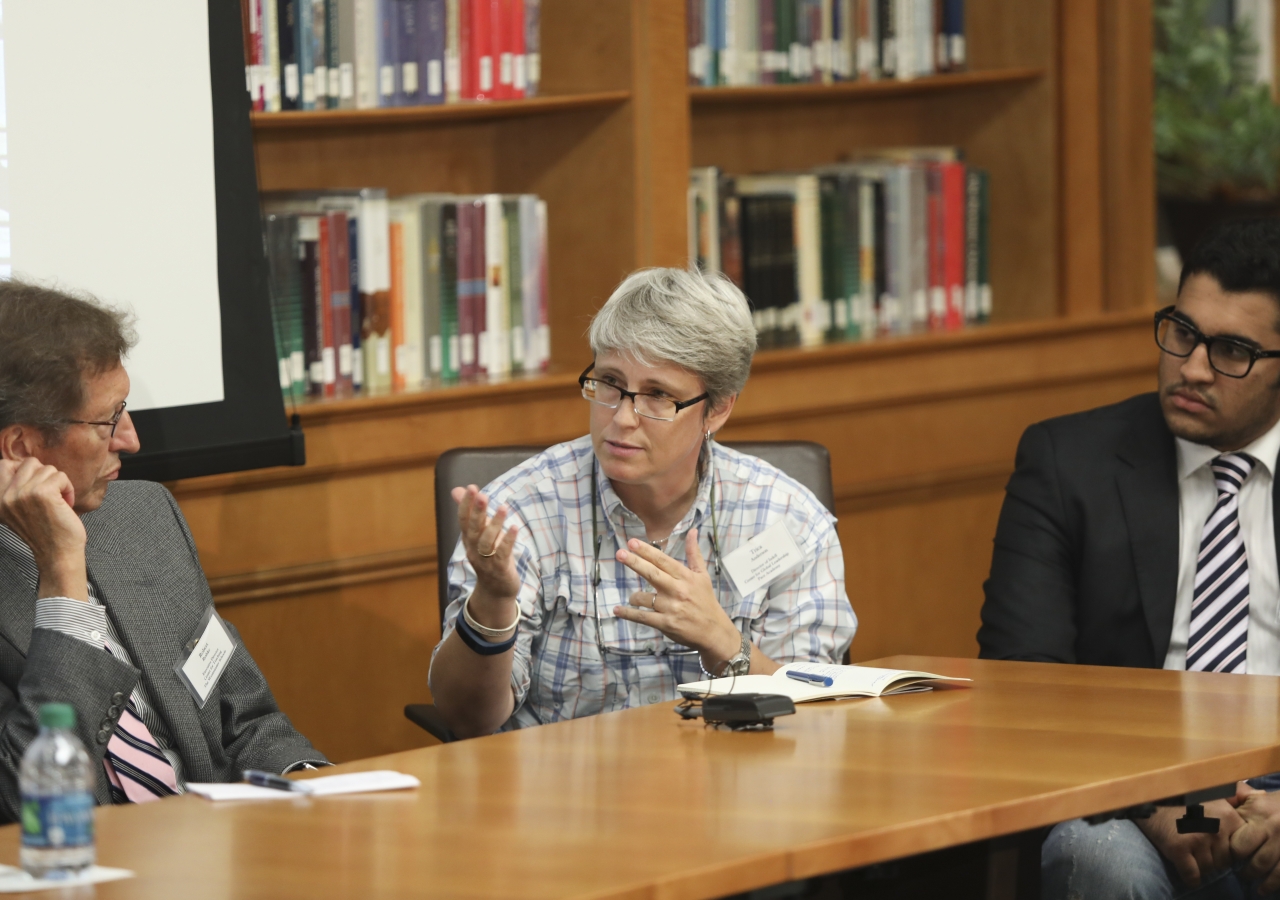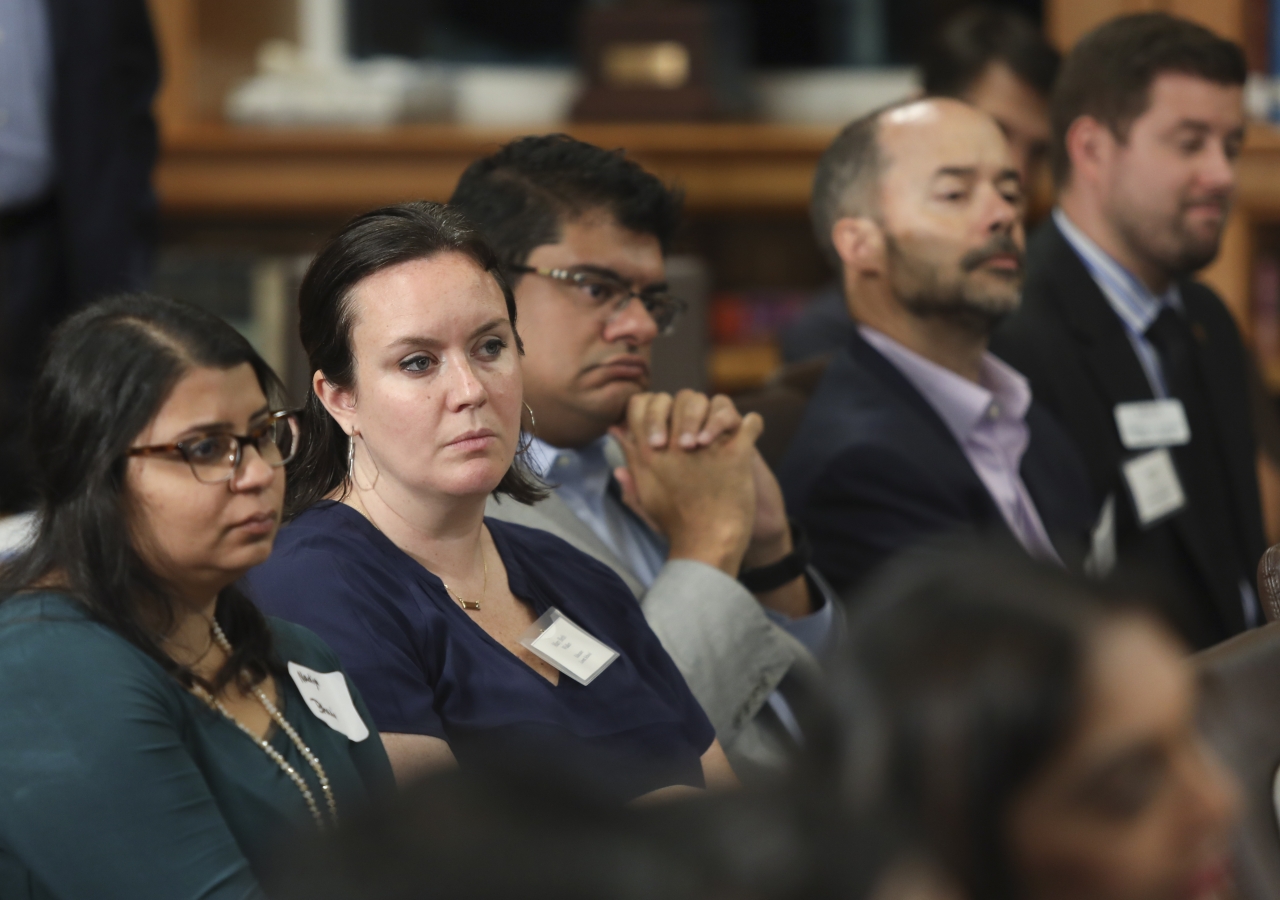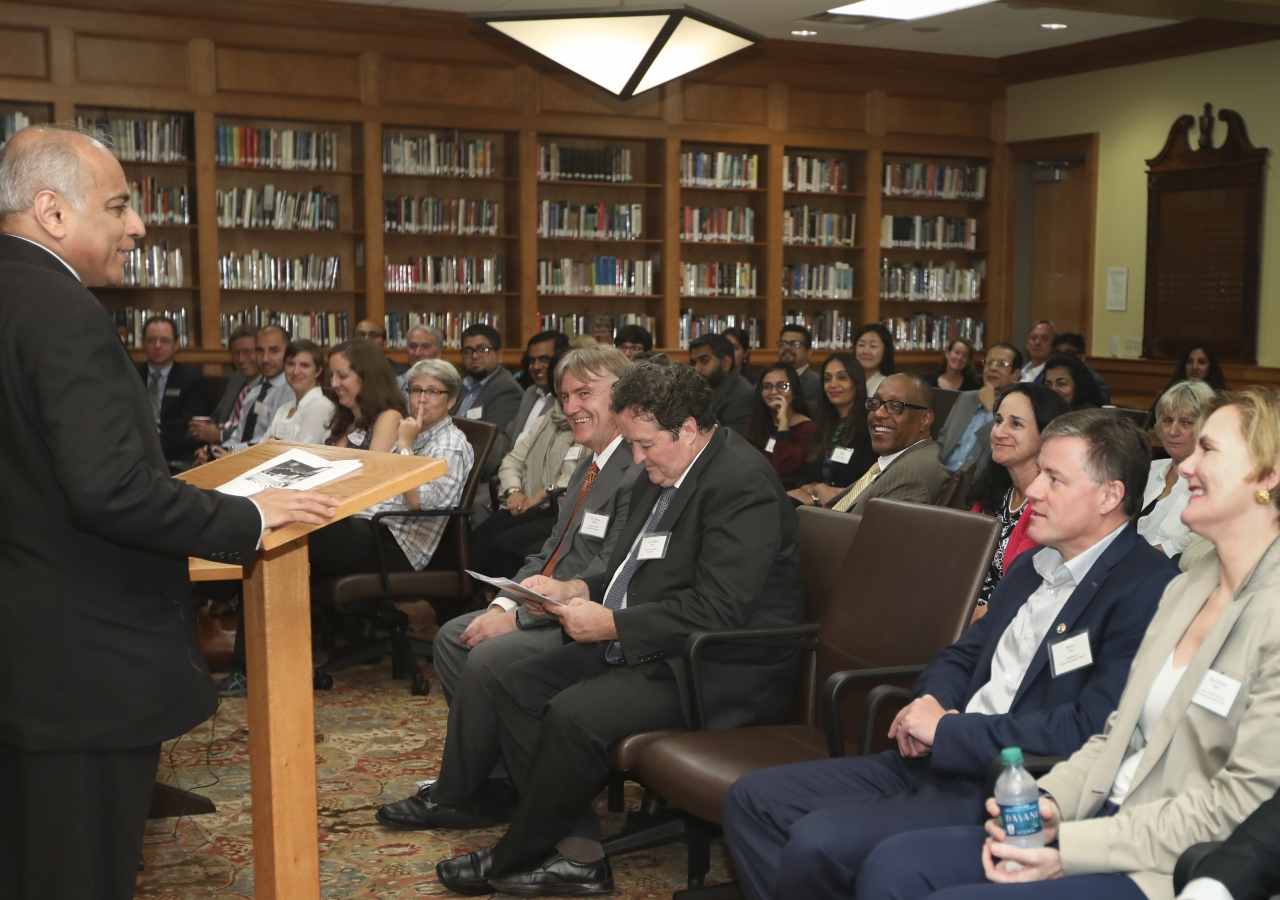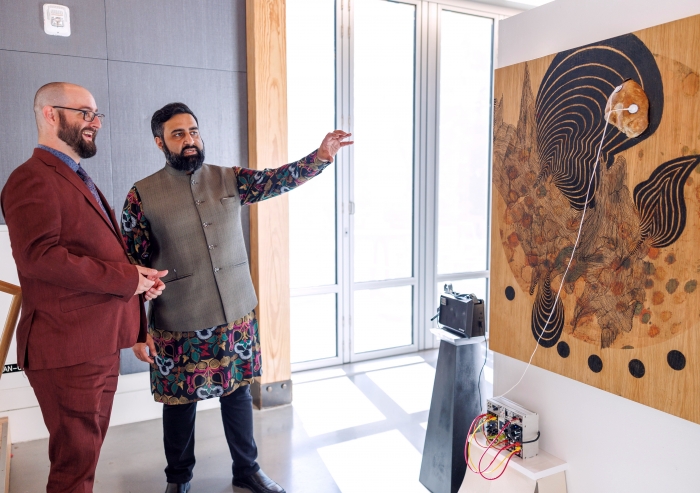Global-minded leaders are those who understand the world’s most daunting challenges, are aware of cultural, religious and socioeconomic differences, and can facilitate dialogue and solutions that foster opportunities for humanity.
But how do we develop these leaders? And how do we nurture them? In August 2017, The Westminster Schools, in collaboration with the Aga Khan Council for the Southeastern United States, hosted a discussion with the Aga Khan Academies (AKA) to share its vision and model, and invited other Atlanta schools and educators to create a dialogue about best practices in developing leadership and global-mindedness in youth.
To set the tone for the evening’s discussion, Dr. Shaffiq Welji, an educator in mathematics and engineering at The Westminster Schools and former faculty at AKA, shared that “the world is rapidly changing, that educators are struggling to keep up and constantly looking for ideas and perspectives. But more importantly, I think many of us are also looking for a vision.” He shared Westminster’s vision that provides opportunity to accomplish greater interconnectedness through their curriculum, which brings students exposure to the world, and their relationships that allow students to connect to global communities by exploring them through the diversity seen in Atlanta. Dr. Welji then invited the Academies team to share their vision, led by Salim Bhatia, Director of AKA, Dr. Graham Ranger, Academic Director, and Dr. Geoffrey Fisher, Head of AKA Hyderabad.
Dr. Geoffrey Fisher spoke of AKA “as an organization that serves as a bridge between the world of development and the world of education [with] a dual mission: an educational mission, which is to do as good a job as we can on behalf of our students and to generate a cohort of leaders, and at the same time, a developmental mission, where we do it on behalf of developing the world and the country, particularly where we are.” At this time, roughly 75 to 80 percent of AKA graduates attend international universities, many with scholarships. AKA in Mombasa is a prime example, where graduates have obtained higher education in international universities and have returned to take on positions locally or nationally. Thus far. 48 percent of early cohorts have chosen to return to Africa.
Salim Bhatia expanded on the notion of a globally-minded leader as the pillar that established the Academies. Global-mindedness stems from a good sense of people’s history, their language, their culture, their heritage and only then, “developing globally-connected youth with this sense of understanding and personal responsibility, that the destiny of developing countries can be truly reached.” He shared that the challenge with high quality schools in developing nations, despite providing an international curriculum, is that mostly the privileged and well-off send their children there, and the preparation is for export.”
The bright, with very high potential but without financial resources, are left without opportunities to a deserving good education, said Mr. Bhatia. Not only does this limit access, but it also creates a brain drain from the local communities. Hence, the Academies were “envisaged to be a transformative force in these countries...as catalytic centers of excellence” he said, to fulfill the need of home-grown leaders. And being a network of multiple campuses with mobile staff, students and mentors that provide peer-to-peer networking opportunities, the Academies can truly provide, not just a global curriculum, but also support it with global experience.
“There’s a real drive in us [as educators] to try to provide opportunities for young people to develop both globally with ethical characteristics, and develop leadership and relevant ones,” stated Graham as he described the aspirational characteristics of their students with the goal that they will serve others and lead by example with an ethical underpinning set in a pluralistic environment.
The Academies’ partnership with the International Baccalaureate Organization (IBO), which shares a similar enabling pedagogy, allows IBO to pilot and test new programs and courses and allows AKA to build professional development for teachers and create a larger footprint of their influence. However, AKA goes beyond IBO’s definition of “global-mindedness,” and takes a more active approach by using the IB curriculum as a framework and customizing it by adding ethics, pluralism, cultures, governance and civil society, and global economics, as strands that run throughout the curriculum. This enables the development of young people as global leaders with an age and context appropriate way irrespective of the child’s circumstances.
This pedagogical approach leads to a direct outcome that Mawlana Hazar Imam mentioned in his Jodidi lecture at Harvard in 2015, where he shared that “a pluralist, cosmopolitan society…which not only accepts difference, but actively seeks to understand it and learn from it. In this perspective, diversity is not a burden to be endured but an opportunity to be welcomed.”
The evening ended with a panel discussion with members from The Westminster Schools, Pace Academy and AKA.along with an AKA Mombasa graduate, Adnan Jivanji. In this discussion, Westminster’s Bob Ryshke and Dr. Welji shared the school’s service learning through programs in each division. Students also learn to appreciate diversity through service with the Clarkson community and refugee populations, in addition to student exchange programs to China and Spain, which exposes them to the world and harnesses those interests back into diversity within the Atlanta communities.
Trish Anderson, Director of the Isdell Center for Global Learning at Pace Academy, shared their mission to create global leaders by teaching “connected capitalism” where students learn the importance of connectivity between individuals, governments and non-governmental organizations. Pace brings the global lens in the classroom by changing the pedagogy from discovery to imagination to empathy, in their K-12 program.
The dialogue revealed a similar vision for all three schools with slightly differing approaches, but with best practices that included finding the right students, serving them well with an ethical foundation through a planned approach and vision for global-mindedness, and providing them with unique and sometimes personalized opportunities to grow their leadership potential. Pace Academy recognized that being able to provide not only means for students from different socio-economic background educating together, but to celebrate this diversity in racial, cultural, religious and socio-economic background is something that the AKA embraces and does well. The evening opened up opportunities inviting a more in-depth conversation with potential for partnerships between schools in the developed and the developing countries.
The true test of success can only be measured by the attitudes and involvement of the graduates. One such example in the panel was Adnan Jivanji, who attended the AKA from 2003 until he graduated in 2015. He is currently a student at Savannah College of Art and Design (SCAD) in Atlanta. AKA “shaped the attitude of my life” says Adnan. He reconciles himself as a leader, one who can gather a team to work towards a goal, then continue to make it better. “For me, nothing is just good. It could be better” says Adnan as he describes his experience in high school where he was appointed as the swim captain for his team, even though he was surrounded by better Olympic-skilled swimmers. But in that leadership opportunity, he realized that he learned the ability to develop a team, define a goal, motivate his team to achieve that goal, and continue this process to build better.
Adnan also recognizes his leadership attributes as he helps SCAD in the admissions process with global applicants from Africa. Adnan plans to get his Master’s in Real Estate and return home so he can contribute his knowledge and skills to his local and national community. He summed it up as the voice for all interested young global leaders, “Give me these experiences to build me into a leader!”










